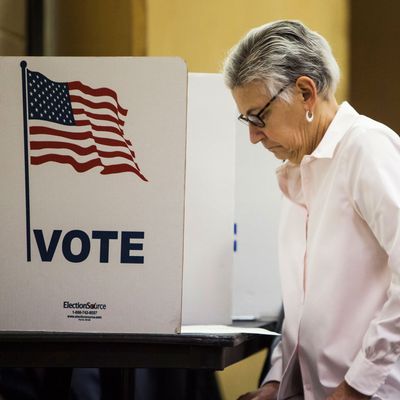
It’s pretty common knowledge that the United States’ record on women in politics is abysmal. Currently, a little less than 20 percent of Congress is made up of women, and the same goes for about 25 percent of state legislatures. And, of course, we have yet to elect a female president, which puts the U.S. behind at least 63 other nations with past or present female heads of government.
Most studies concentrate on these higher levels of government, but a new report from the CUNY Institute for State and Local Governance seeks to determine whether the numbers are just as bad at a local level. And, using present and historical data on mayoral and city-council races in the 100 largest cities in the country, researchers determined they are.
According to the report, about one-third of city councilors in the U.S. are women, which doesn’t seem so terrible — until you scroll down and read that only 18 percent of mayors are women. What’s more, of the mayoral candidates in all 100 cities, only 19 percent were women.
As with other studies, this one found that women aren’t underrepresented because they’re bad at running for office or because they habitually lose races — in the most recent mayoral elections, women were almost as likely to win as men when they ran for mayor. However, far fewer women chose to run for office than men.
There are many reasons women might not run for office in the first place, among them “gendered social roles, negative self-perceptions, limited exposure to politics, and lack of support,” according to the report. (And, as with most things involving gender parity in politics, the wage gap factors in as well.) What’s more, even if they do choose to run, they’re less likely to seek the most powerful positions in local government.
“Only by increasing the number of women running for, and being elected to, local office can we challenge the misconceptions and stereotypes about women officials,” the report concludes. “In doing so, we can also reap the benefits that women officials bring to government, from increased legislation on important issues to more transparent, effective decision-making that raises the standards of political dialogue and crosses party lines.” Because, when women do get involved in politics, they’re good at it.




